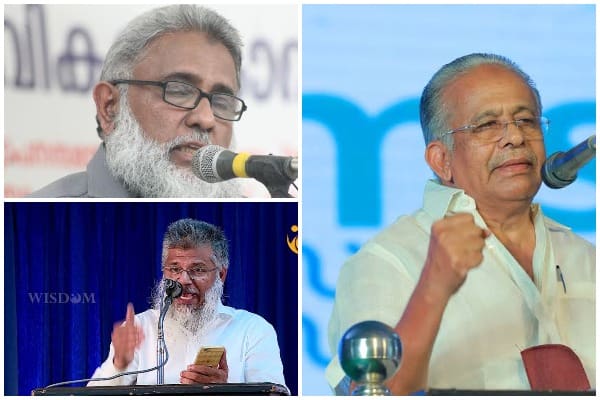
Several Muslim organisations in Kerala including Indian Union Muslim League have asked the state government to go in for an appeal against the High Court order that cancelled the 80-20 ratio for the allocation of funds for the welfare of minorities in the state.
On Friday, Kerala High Court quashed the Kerala government’s order sub-classifying the minorities by providing 80% of merit-cum-means scholarships to the Muslim community and 20 per cent to the Latin Catholic Christians and Converted Christians.
Muslim League national organising secretary and Lok Sabha MP ET Muhammed Basheer said that his party will file an appeal against the order.
“Strongly disagree with the High Court ruling on minority education and welfare schemes. The Sachar-recommended-scheme was originally meant solely for Muslims before being modified to get some Christians a 20 %. Christian minority issues must be studied and dealt with in isolation,” he said.
Basheer said that while there were general projects like the MSDP meant for all minorities, the said project was meant to address the backwardness of the Muslim community alone.
Strongly disagree with the High Court ruling on minority education and welfare schemes. The Sachar-recommended-scheme was originally meant solely for Muslims before being modified to get some Christians a 20 %. Christian minority issues must be studied and dealt with in isolation
According to Jamaat-e-Islami Kerala chief M I Abdul Aziz, the High Court order is an injustice to the Muslim community.
“The HC verdict has not considered the background and objectives of the minority welfare project. The state government should file an appeal against it,” he said.
Popular Front of India (PFI) state general secretary A Abdul Sathar said his organisation will take the legal course against the “unnatural” court order. He added that former CPIM minister Paloli Muhammad Kutty, who headed the committee that decided the package, himself has clarified that 100 per cent of the fund was meant for Muslims.
Veteran CPM leader Paloli Mohammed Kutty, who had headed a panel set by the LDF government in 2007 to make suggestions on the Sachar committee report, told reporters that the scholarship scheme implemented as per Sachar committee report was meant for Muslim community alone.
“The UDF government issued the order in 2015 to address the backwardness of the Muslims as revealed by the Sachar Commission report. There are other special packages at the central level for addressing the backwardness of minorities and it is a great injustice that a confusion has been created about the 80-20 package,” Wisdom Islamic Mission state president PN Abdul Latheef Madani and general secretary TK Ashraf said in a statement.
The HC issued the order on the petition filed by Justine Pallivathukkal of Palakkad against the order of the government on May 8, 2015. The fixation of ratio is illegal as it was not based on the actual population of these minority religions, said the petitioner, arguing that under the cover of minority rights, the state government is supporting a particular section. Though the Christian community raised a complaint, it was not attended to by the state or the Minority Commission, he said in the petition.
The LDF government contended that the Paloli Committee relied on statistics from the Justice Sachar Committee report and Kerala Padana report for finalizing its report, which reveals Muslims are far behind Christians in the college enrollment (and even behind scheduled castes and scheduled tribes). That is 8.1 per cent for Muslims and 28.1 (forward Hindus), 20.5 (Christians),16.7 (backward Hindus),11.8 (Scheduled Tribes) and 10.3 (Scheduled Tribes).
According to the government, the unemployment percentage is 55.2 among Muslims, while it is 31.9 among Christians and 40.2 among backward Hindus.
In the case of land ownership, only 3 per cent of Christians are landless while it is 37.8 per cent among Muslims.
The government data also states that the Muslims in Kerala stand far behind the other communities in the social-economic and educational fields.
However, Kerala High Court observed that the decision of the government is unconstitutional and unsupported by any law. The state court also directed the state government to pass appropriate orders providing merit-cum-means scholarship to members of the notified minority communities within the state equally and in accordance with the latest population census available with the State Minority Commission.
The Kerala Catholic Bishops Council (KCBC) has welcomed the High Court order.



